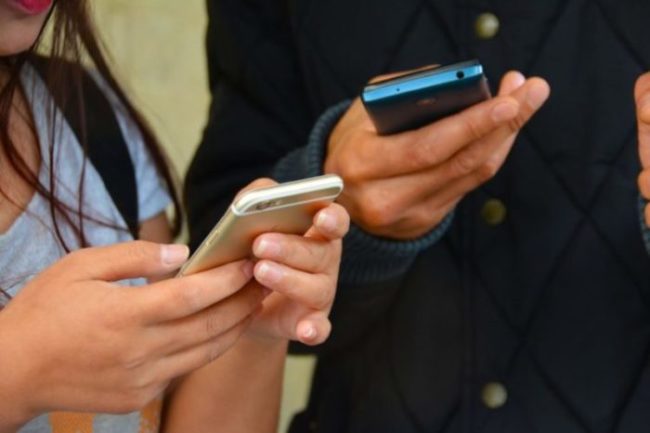Social media can be defined as online communities that give users the ability to post text, videos and photos to express their opinions. One of the most popularly used forms of social media, Facebook, has been such an effective social networking company because, unlike their predecessors, they have been able to attract a diverse range of age groups and promote entire communities to communicate online. The ability to find friends online, to create pages and events that allow for others to join or see and Facebook Messenger demonstrates the perception of social media creating communities and connections. In fact, as of 2016, 69% of all adults use at least one social media site. Of this 69%, 22% of them sign onto their favorite social media site at least 10 times a day. Since social media has grown over 60% in the past ten years, it was inevitable that social media would start to affect the way society is communicating and interacting. While social media has changed communication in a positive way, it also has the ability to cause disconnect between people which would prompt users to take a break from social media. A survey, quoted by the New York Times, stated that “nearly 60 percent of teens in the U.S. have actually taken a break from social media — the bulk of them voluntarily.” While social media fosters an environment of connectedness and belonging in the digital world, it also forces a disconnect between people in the real world.
Feelings of connectedness and belonging have grown with the rise of social media, by bringing together those with similar opinions, issues and even similar personal experiences. Before social media became a tool used by billions of people worldwide, it was difficult to find others who could relate to similar situations outside of your local community. Social media can be reassuring for those who feel alone, excluded or isolated by creating digital connections on various social media platforms like Facebook, Instagram and Snapchat. By posting and sharing personal experiences, relationships are formed and/or upheld, and interaction with distant friends and strangers becomes more convenient, while being reminded of one’s social connectedness online. At the same time, it also has the potential to tear people apart by damaging relationships, causing isolation, and decreasing productivity rates. Social media can be used to create false perceptions of one another online, which can be referred to as code-switching. Code-switching as explained in Lauren Lyons’ article is the act of changing how one acts or speaks to fit in. As said by Gene Demby in Lauren Lyons article The Curious Conundrum of the Code-Switching Tokenized Teacher, “Many of us subtly, reflexively change the way we express ourselves all the time.” Whether it is to feel apart of something or to form a better outside image of oneself, users can use social media to code-switch. Additionally, as more people have started to make social media a bigger part of their lives, a loss of physical connection has decreased due to conversations online. This loss of face to face interactions has provoked a rise in depression and anxiety, causing self-esteem issues. The rise in social media demonstrates how it can become an addiction to not face real world problems and become more comfortable online than in person. A social media addiction can lead to more materialistic values and becoming more exposed to drinking culture and sexual references.
Dustin Blank: Social Media – A Threat To Society |
Samantha Mastrocola: Social Media, Connectedness and Self-Esteem |
John Post: How Governments Utilize Social Media to Alter Relationships |
Alex Segnini: How Does Social Media Affect Mental Health? |
Destynee Spieker: Social Media and its Controversial Effects on Interpersonal Relationships |
Emily Walsh: How Social Media Addiction Can Strain Our Relationships |
Effects of Social Media Additional Resources |
